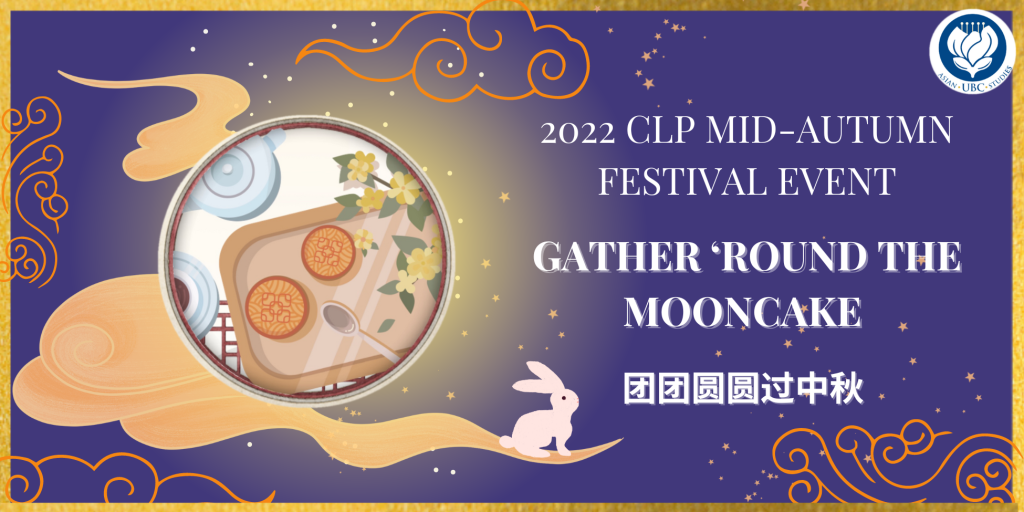

“I lift my head, gaze at the bright moon, lower it, and dream of home.”
This line from the famous Tang dynasty poem “Still Night Thoughts,” written by Chinese poet Li Bai (701-762), best conveys the sentiments of moon worship and homesickness characteristic of the Mid-Autumn Festival. Corresponding to some time between mid-September and early October, the holiday is celebrated on the 15th day of the 8th month of the Chinese lunar calendar when the moon is at its fullest. In Chinese culture, the festival marks an occasion for reunions with family members and friends.
Around this year’s Mid-Autumn Festival, the UBC Chinese Language Program staged the event of “Gather ‘Round the Mooncake” in honor of some of the hallmark traditions associated with this holiday. The delicious pastry of mooncakes was handed out in classes, and lantern riddles were displayed in classrooms. Most importantly, students and teachers had the chance to greet each other in jubilation to celebrate long-awaited reunions in the school community.
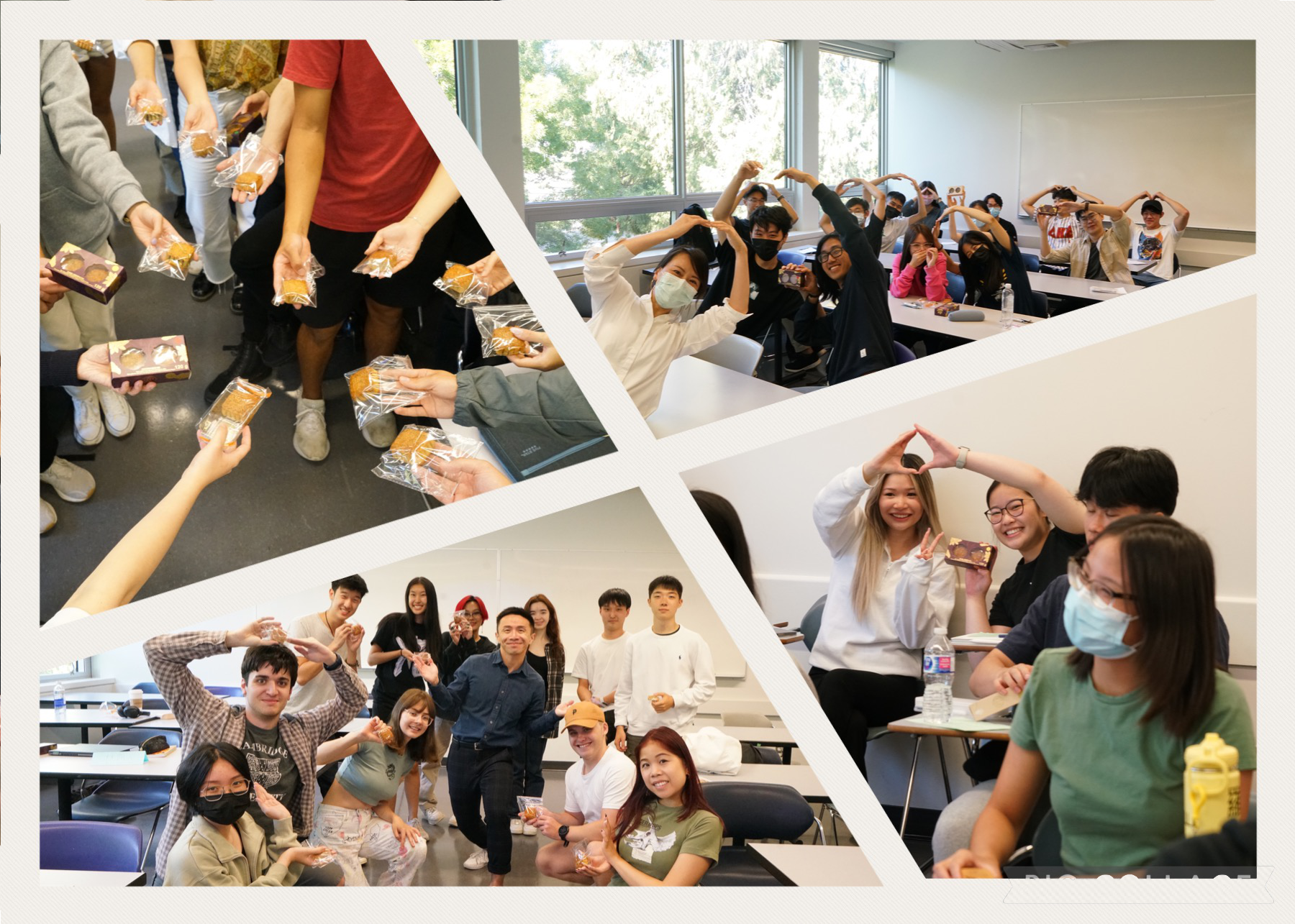

Students from various heritage and non-heritage CHIN courses gathering in celebration of the Mid-Autumn Festival
For students curious about the cultural significance of Chinese characters, it was an excellent opportunity to ponder the connections between nature and human feelings. The round shape indicated by the character 圆 conveys people’s aspiration for completeness and therefore symbolizes reunion (团圆) in Chinese culture. That is also why mooncakes are made in round figures to objectify moon worship.
Compared with the last year’s online events, this year’s festivities allowed participants to spend the holiday in person, making the occasion a genuine experience of reconnection, reunion, and reflection. During classes, students were encouraged to share their homeland’s customs relating to the moon. Having lived in Canada his entire life away from family in Asia, David Huang reflects on what the word “reunion” means to him.
“I often feel that I’ve become disconnected from a significant part of my Chinese heritage, so reunion represents an opportunity for me to bridge this gap, such as when visiting the village where my grandparents were raised, sharing tea with distant relatives, or simply walking through the bustling streets of the city that my parents left for a new life in Canada. This feeling is as comforting as it is powerful, giving me renewed inspiration to figure out what I want to become in life and where I want to go.”
David Huang, CHIN 141 001
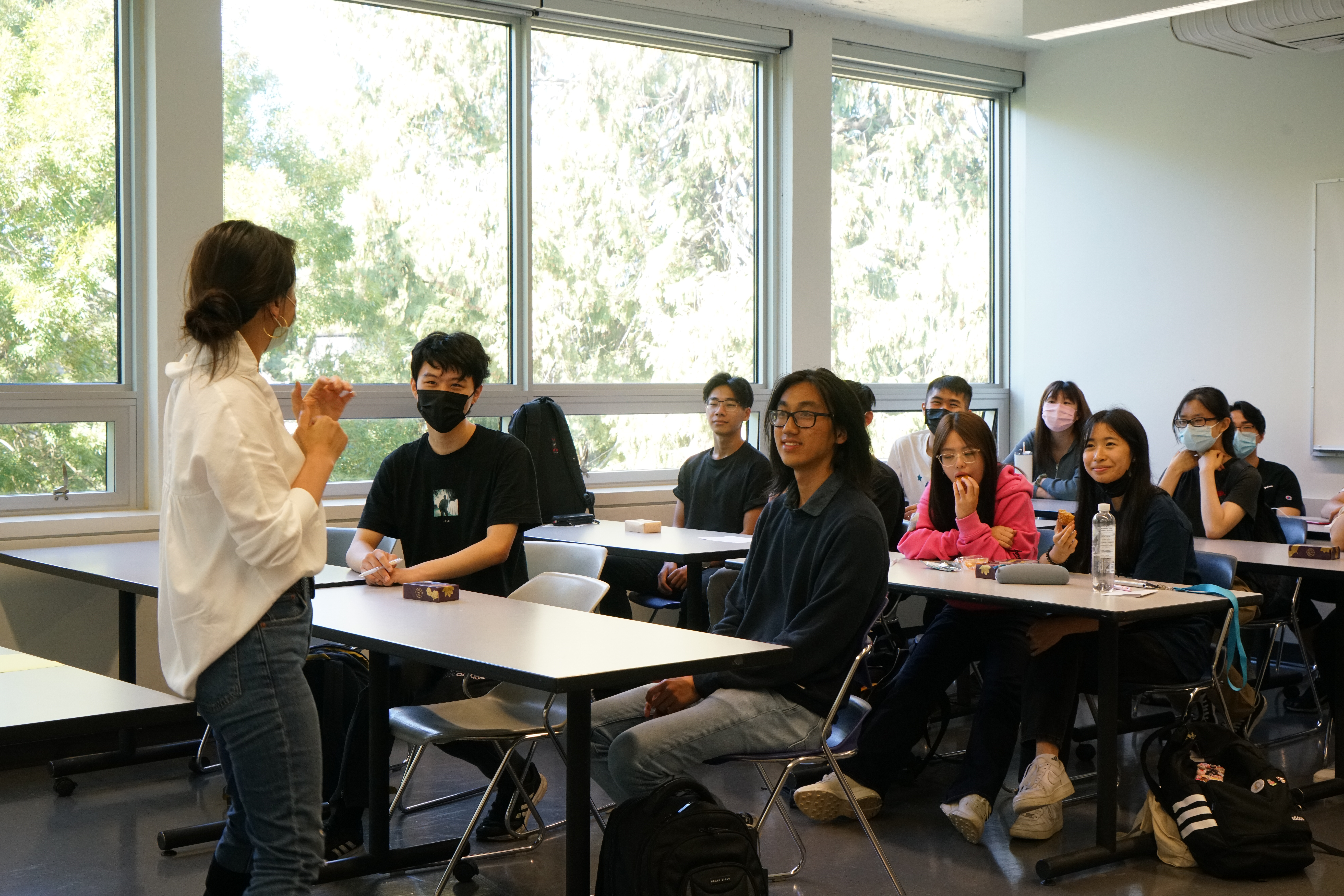

Wang Hsiang-Ning Laoshi and CHIN 141 students engaging in a class discussion
For many students like David in heritage CHIN courses at UBC, becoming more attuned to reconnecting with their cultural background is a major driving force behind learning Chinese.
“In this journey of rediscovering forgotten memories, cherished traditions, and long-lost connections, I experience a strong sense that I am being reunited not only with my extended family and their culture but also with a deeper understanding of who I am.”
David Huang, CHIN 141 001
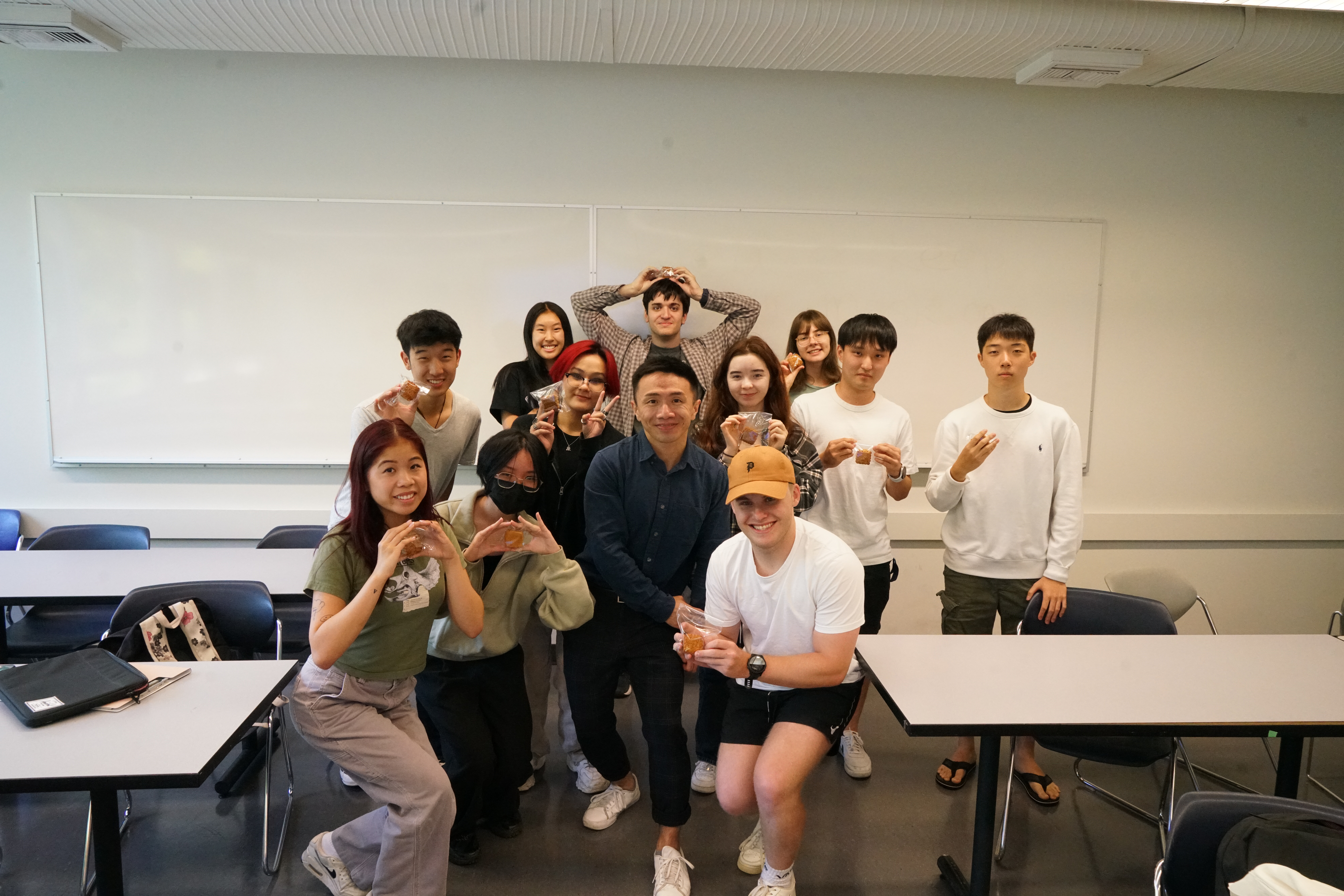

Chen Yi Laoshi and students in CHIN 133 posing with their mooncakes
For students of non-Asian heritage, Angelina Markovic shares her views on why holidays like the Mid-Autumn Festival are crucial:
“I think cultural celebrations, such as the Moon Festival and Slavas (traditional celebrations in Serbian culture), are vital to multicultural communities. Not only do we connect with our own culture, but we connect with other cultures when we recognize that many of our sacred days are centered around the same concepts; in this case, family and reunion.”
Angelina Markovic, CHIN 133 011
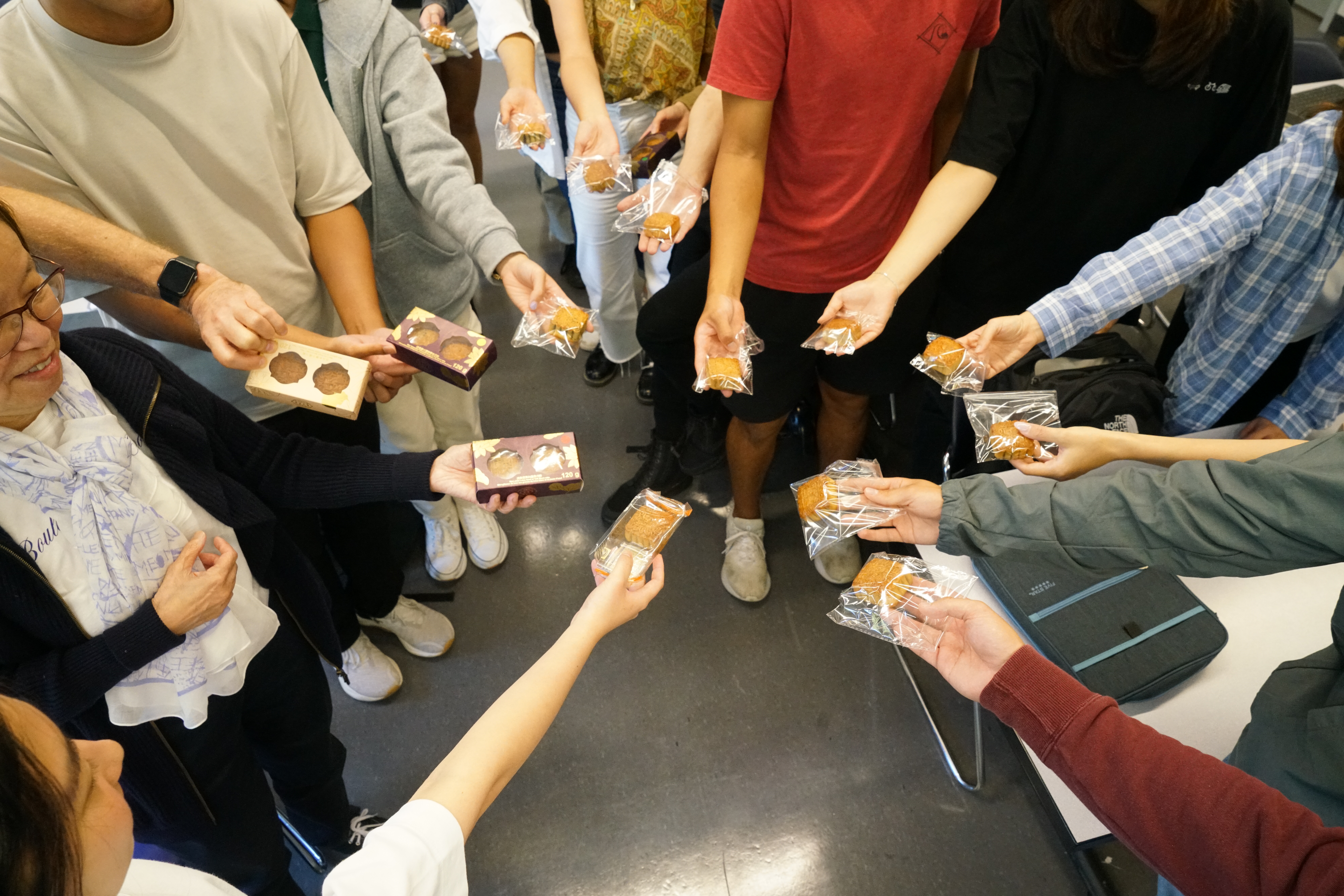

CHIN 331 students showcasing their mooncakes in class
Similar traditions of the Moon Festival are celebrated in cultures outside of East Asia. Students discussed different regions’ eating habits during the holiday to help others understand their diverse cultural backgrounds in Chinese language courses. Mei gladly shares her experiences of eating mooncakes in Thailand, referring to changes in flavor as an indicator of how Asian cultures are transmitted and readapted.
“I think one special thing about the moon festival in Thailand is that the mooncake flavors are adapted to Thai culture. With flavors like durian, salted egg lava, and custard, not only the fillings but the outer shell is also adapted to be more chewy, similar to mochi.”
Mei, CHIN 331 002
The Chinese Language Program is dedicated to creating a harmonious and engaging learning environment for every student. The “2022 Gather ‘Round the Mooncake” event was among the program’s many cultural activities held annually to engage students in the cultural interpretation of language and ideas. Reunited with peers and teachers in the autumn of 2022, students from various cultural backgrounds must have gained bright inspiration from the full moon’s wisdom.
愿 你 的 生 活 像 十 五 的 月 亮 一 样, 圆 圆 满 满。
May your life be as full as the moon on the Mid-Autumn Festival.
If you would like to stay tuned for future events with the CLP, please keep updated with @ubcchinese on Instagram.


